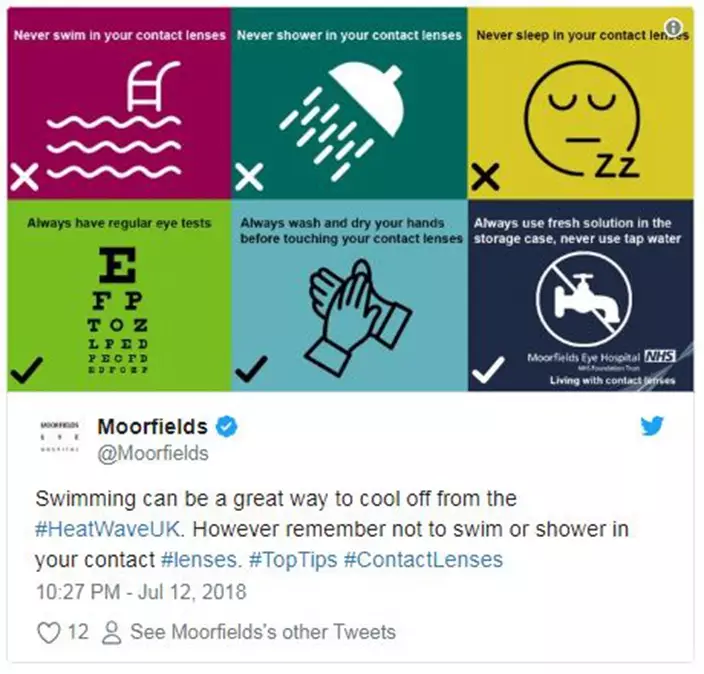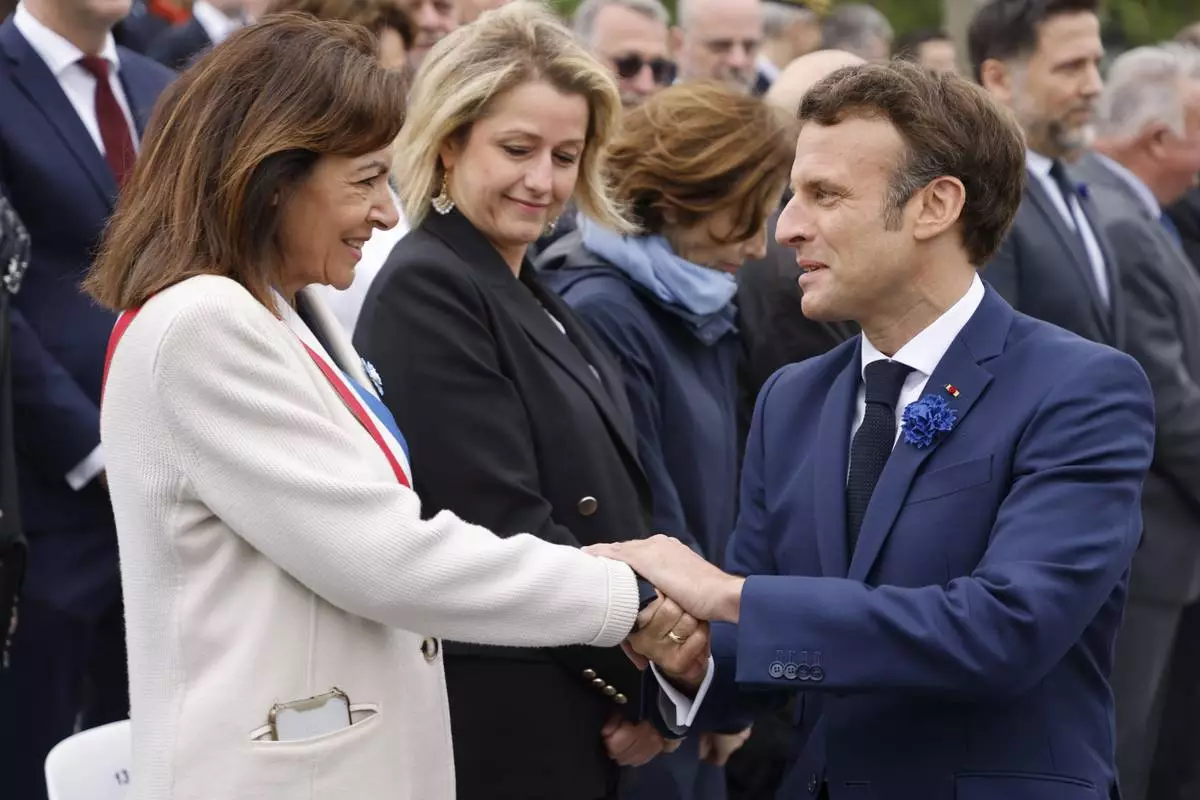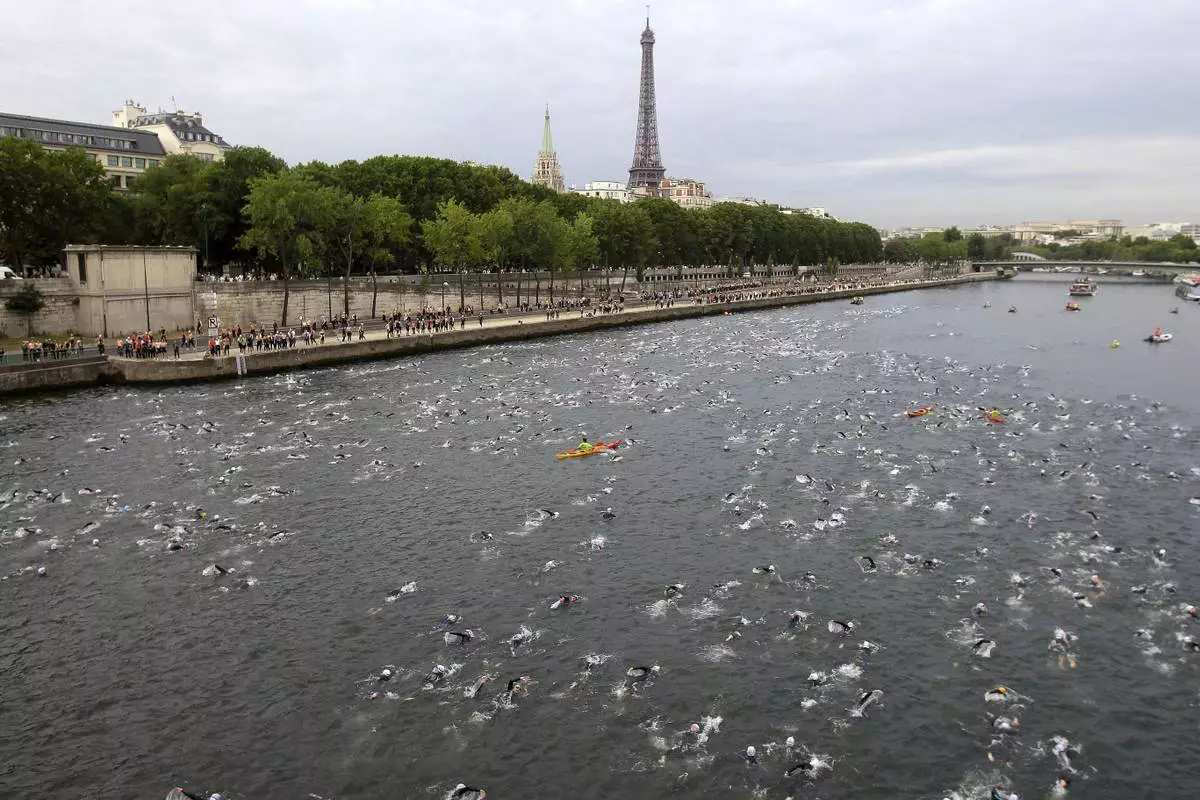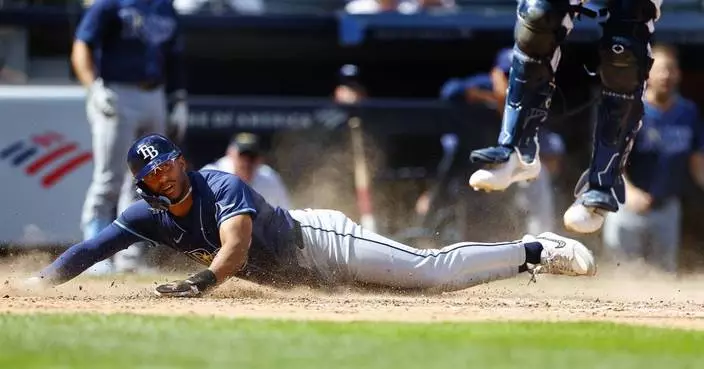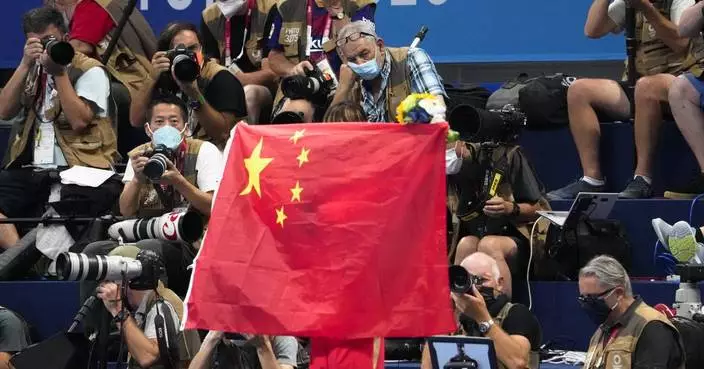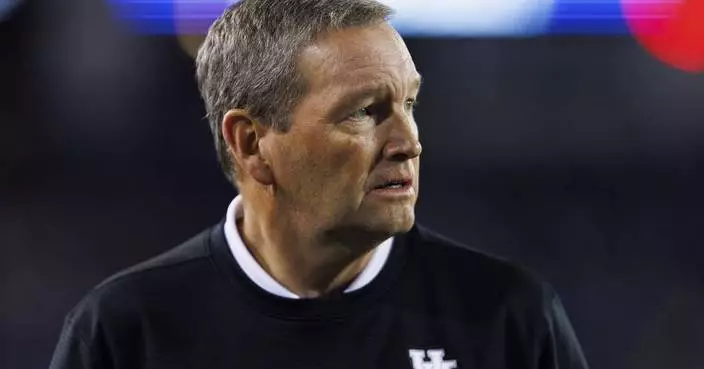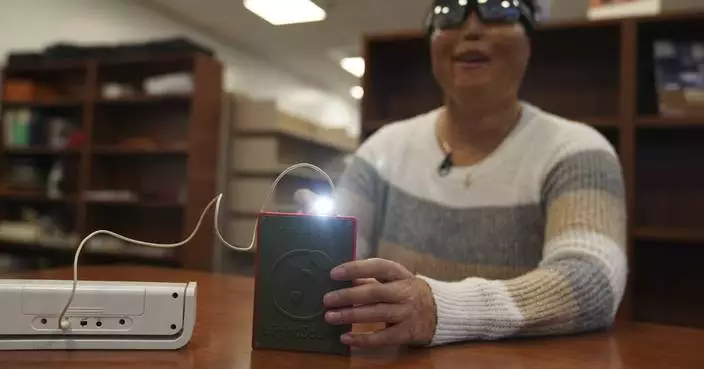Emma Jenkins was in the pool for just 20 minutes when her eye became irritated.
Blinded after a parasite burrowed into her left eye when she swam wearing contact lenses during a Scottish holiday, a mum has spoken about the “miracle” that restored her sight.
Hotel financial controller Emma Jenkins, 39, from Bournemouth, Dorset, was enjoying an autumn break at a caravan park, when she took a dip in the on-site pool without removing her lenses.
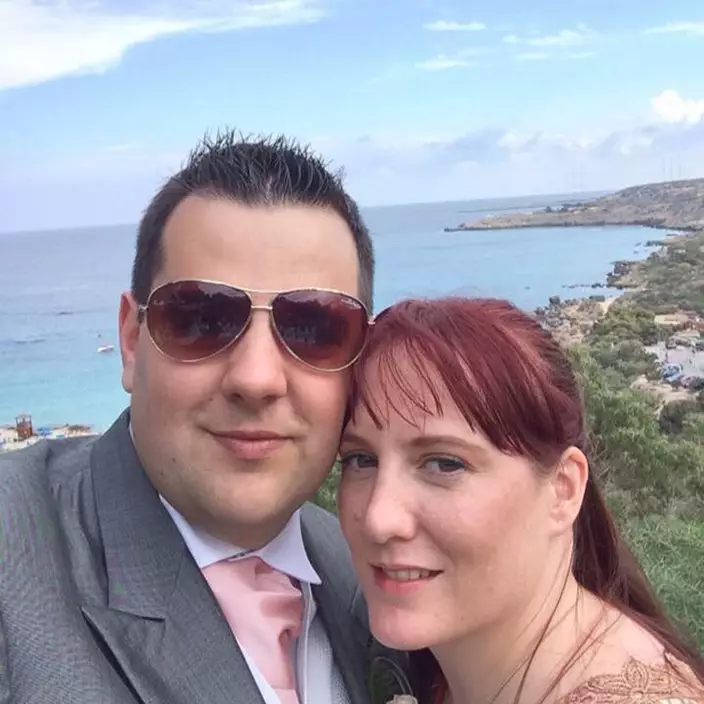
Emma and her partner Dean (Collect/PA Real Life)
Back home a week later, after suffering severe pain in her left eye, she saw her GP, who examined her. But just three days later, she lost the sight in her eye, as microscopic bacteria had caused an ulcer, destroying her cornea.
A mum to Alishia, 16 and Samuel, 13, she explained: “I had no idea that wearing contact lenses in the pool was so risky. I left them in so I could see.
“It’s really frightening how quickly it happened. I was only swimming for about 20 minutes, yet it cost me the sight in one eye.
“When I got out of the pool, my left eye was irritated, so I went back to our caravan and took my lenses out, as it was hurting so much.”
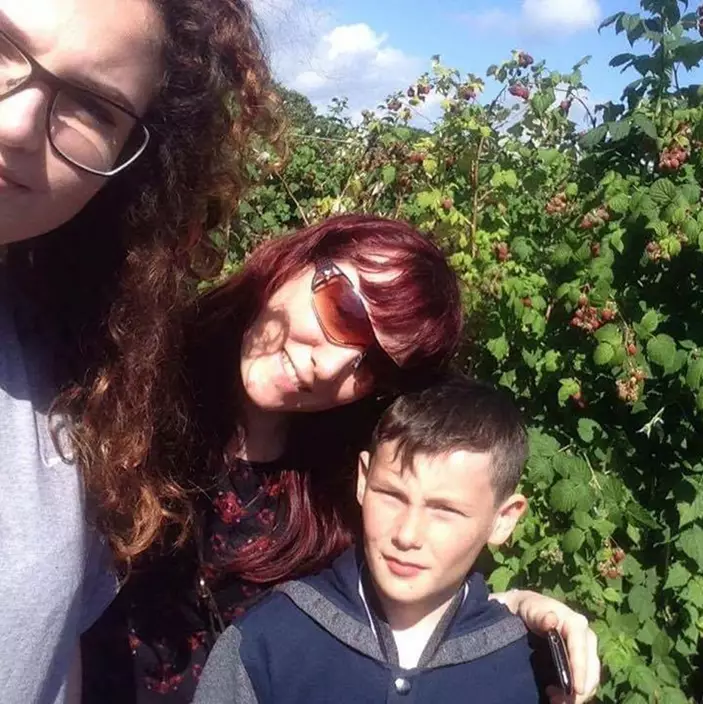
Emma and her children Alisha and Samuel (Collect/PA Real Life)
She added: “Over the next few days, I was getting headaches and my vision was very blurry.”
Trying to enjoy the rest of her week-long holiday in October 2013, so as not to ruin it for her children and hospitality supervisor partner, Dean Keith, 30, she waited until she got home to see her doctor.
Referred to eye casualty at the Royal Bournemouth Hospital later that day, she was diagnosed with anterior uveitis – an inflammation of the middle layer of the eye – and given steroid drops.
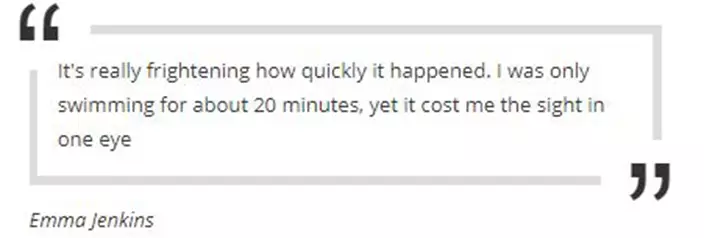
She continued: “I was using the drops, but three days later, I lost the vision in my left eye, as the bacteria had multiplied very quickly.
“The blurriness was getting gradually worse and when I woke up on that day and I was in so much pain I couldn’t even open my eye. It really hurt but I was quite calm because I really thought it was going to be fine. I thought it was just a really severe infection.”
Emma’s partner Dean called a taxi and immediately took her back to eye casualty, where she was diagnosed with microbial keratitis and a microcystic corneal oedema – meaning she had a swollen and infected cornea, the clear window on the front of the eye.
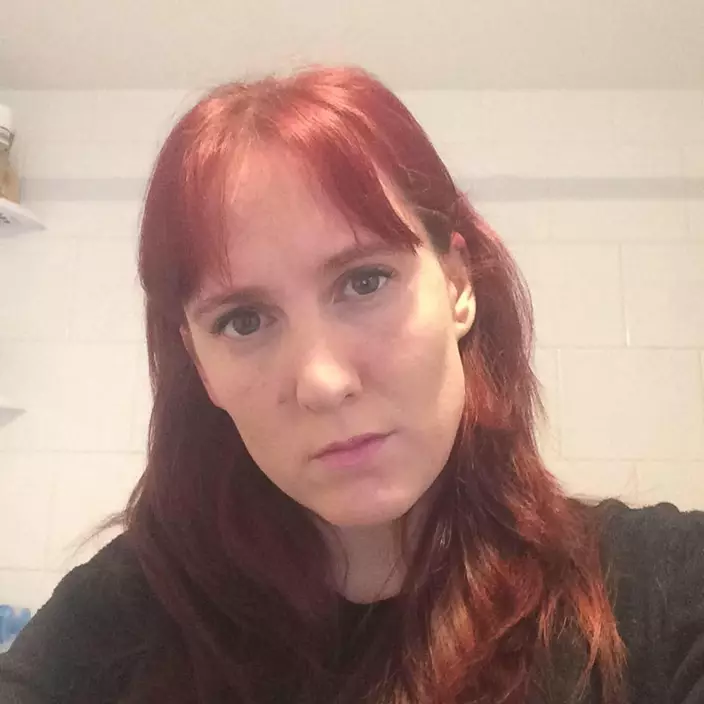
Emma now (Collect/PA Real Life)
“It caused a massive ulcer that covered my whole iris,” she said.
“They admitted me for five days with hourly drops to try and save my eye, but it didn’t work and I was sent home on November 1, 2013.”
The condition had caused full thickness scarring to Emma’s left eye, meaning she could only see movement and light through it.
She said: “When I was admitted thought it would get better and get back to normal.
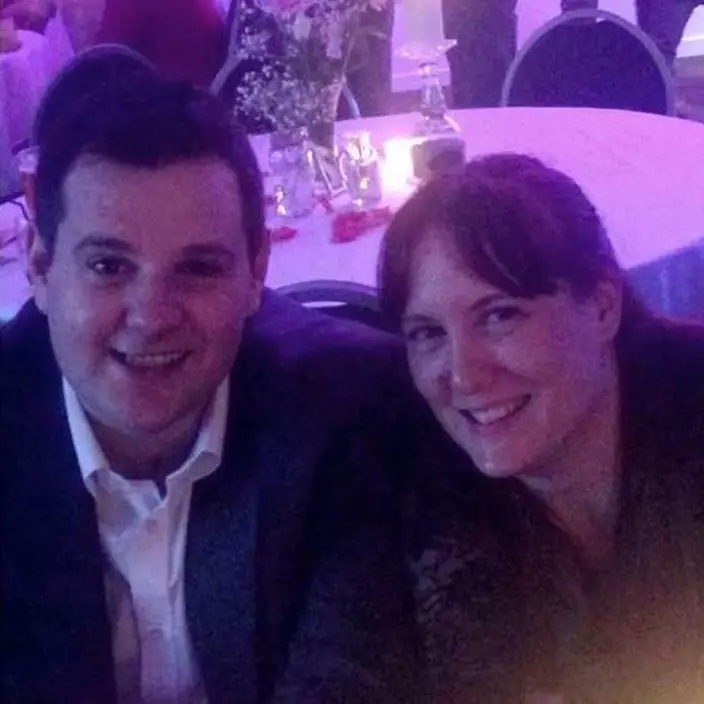
Emma and her partner Dean (Collect/PA Real Life)
“But, after a few days in hospital I was told by the doctor how serious it was and that the vision would never be back to what it was.
“I was shocked, but at the time, I was in too much pain to really take it in.”
In the years that followed, Emma’s vision in her left eye deteriorated further.
Then, in April 2016, she was told she would be a suitable candidate for a cornea transplant – where the damaged tissue is removed and replaced with healthy tissue from a donor – in a bid to restore some sight.
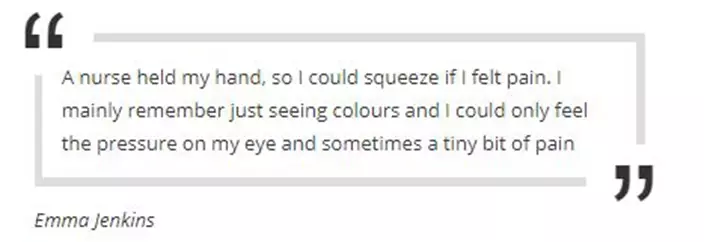
She explained: “We hoped my eye would heal, but it just kept getting worse. I struggled to live with just one eye and eventually, doctors agreed the cornea transplant was my best option.”
After a two month wait, Emma was taken for her transplant, at the centre for sight in East Grinstead, West Sussex, on 1 June 2016.
She explained: “The waiting list isn’t very long, as the cornea doesn’t need to be matched like other organs, but it is a very unusual operation, as you are awake throughout and it is done under local anaesthetic.
“They numbed my eye and I was told not to move at all. A nurse held my hand, so I could squeeze if I felt pain. I mainly remember just seeing colours and I could only feel the pressure on my eye and sometimes a tiny bit of pain.”

Emma Jenkins (Collect/PA Real Life)
She continued: “The nurse spoke to me the whole time, telling me I was doing great.”
The procedure took less than half an hour and Emma was able to leave hospital later that day.
She said: “As it healed, I started to be able to see more and more. Unfortunately, they weren’t able to remove the full scaring. I can now see more out of that eye but it’s not completely clear. Before it was like looking through a big puffy cloud and now I can see things but they just aren’t perfectly in focus. I suffer from the dry eye but it’s worth it to be able to see again.”
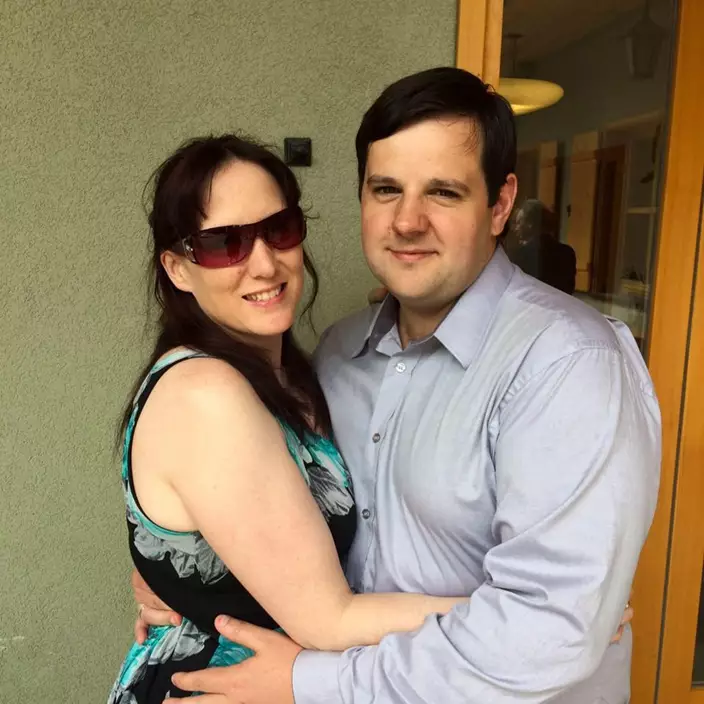
Emma and Dean (Collect/PA Real Life)
She added: “My mum Kim Thomson, 59, was amazing throughout everything and helped to care for me while Dean looked after the children. I couldn’t have got through this without my family and friends.
“I don’t think people realise the serious dangers of wearing lenses in water. I do still wear a contact lens in one eye but I am much more aware of the dangers. I wear a daily disposable contact lens because I prefer to throwing it away every day. I think everyone just needs to treat them with care.
“I’m so grateful for whoever allowed their corneas to be donated as they’ve helped to give me my sight back.”
